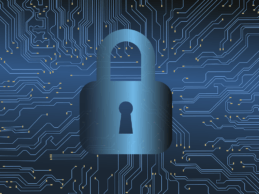While we may consider health largely a private concern in the United States, our nation depends on the continuity and availability of its healthcare system in a very public way, as evidenced by the current coronavirus outbreak. Our critical healthcare infrastructure is vulnerable at this time, no doubt, but it truly has been inspiring to see doctors, scientists, and other industry professionals from around the world come together to stop the spread of COVID-19. To fend off exploitative
Read More
Healthcare Cybersecurity | Healthcare Data Security | Ransomware | Hospital Security Breaches
Healthcare Data Infrastructure Security Cannot Be Ignored During a Pandemic
The rapid advancement of technology has inspired hope in the healthcare industry, promising to employ artificial intelligence (AI) and cloud-based data platforms in life-altering ways. Surgery assisting robots and miraculously accurate AI-based cancer diagnosis methods are a few preliminary examples of what the industry can expect. With all these great technological strides being taken, however, compliance can easily be left in the dust. And with COVID-19 pushing the limits of healthcare systems
Read More
CynergisTek’s PPMS Leverages AI to Combat COVID-19 Insider Snooping
What You Need to Know:
- CynergisTek, a provider of healthcare cybersecurity and information management announced it has updated its Patient Privacy Monitoring Services (PPMS) to proactively identify and stop insider snooping related to the COVID-19 virus.
- As the number of cases continues to rise, information on patients who have been diagnosed or tested for the virus is incredibly valuable. Many healthcare organizations face the threat of unauthorized
Read More
Hospital Execs Believe Their EMRs Will Fail to Meet Their Future Needs, Report Finds
What You Need to Know:
- New Sage Growth Partners report reveals more than a quarter (27 percent) of respondents believe their EMR will fail to meet their future needs. COOs are the most pessimistic (67 percent) followed by CEOs (37 percent), and CFOs (34 percent).
- Hospital Technology Forecast 2020 market survey report reveals hospital leaders’ top health IT investment priorities, challenges, and opportunities.
- 35 percent of hospital executives say if they could go back in time,
Read More
Chilmark Research: The Promise of AI & ML in Healthcare Report
What You Need to Know:
- New Chilmark Research report reveals artificial intelligence and machine learning (AI/ML) technologies are capturing the imagination of investors and healthcare organizations—and are poised to expand healthcare frontiers.
- The latest report evaluates over 120 commercial AI/ML solutions in healthcare, explores future opportunities, and assesses obstacles to adoption at scale.
Interest and investment in healthcare AI/ML tools
is booming with approximately
Read More
GE Healthcare Unveils Medical Device Cybersecurity Offering for Hospitals
- GE Healthcare introduced a new medical device cybersecurity service to help hospital groups fight against cybersecurity risks.
- The offering, entitled Skeye, blends industry expertise, AI and process management tools to augment hospitals’ existing resources and capabilities by providing proactive monitoring through a remote security operations center – helping them detect, analyze and respond to cybersecurity threats and events in real-time.
GE Healthcare has introduced a new
Read More
Looking to Keep Data Analytics in Healthcare Affordable? The Answer is the Cloud
It’s clear that 2020 Healthcare will be the year of big market disruptions. With data-rich players such as Amazon and Google entering into the healthcare market space, many traditional health care systems are reviewing their own strategic plans with an eye towards staying relevant. According to a recent analytics survey by HIMSS, 32% of respondents said that population health is a top focus moving forward, and nearly 60% are eager to make improvements in care.
Most
Read More
3 Ways Healthcare IT Depts Can Start Prepping for “Medicare For All”
Once a long-shot, the idea of universal healthcare in the U.S. is inching closer to reality, particularly as many 2020 candidates promise an expedient implementation of a national federally-run program (or some version of it). Nearly half of doctors support a “Medicare for all” model, and while this won’t change the practice of medicine, it will greatly affect how those providers use technology to run their businesses.
This is particularly true for small- and medium-sized providers; large
Read More
Do We Know When Medical Devices Fail?
Since 2015, the FDA and the US Department of Homeland Security have been releasing warnings about products that due to their vulnerabilities threaten patient safety. This includes MRI machines and drug infusion pumps that supply patients with a wide diversity of drugs, including insulin, antibiotics, chemotherapy drugs, and pain relievers. The interconnectivity of smart devices with medical clinical systems leaves them vulnerable to security breaches just like any other networked computing
Read More
3 Healthcare Cybersecurity Trends to Watch in 2020
The healthcare industry frequently struggles with data breaches and other cybersecurity incidents. That's likely because cybercriminals know the value of medical data. It's also problematic that healthcare information often gets passed between multiple parties and organizations, some of which may have insufficient security practices.
Attacks from malicious actors aren't ceasing, which means healthcare cybersecurity must remain a priority in 2020. But, what, specifically, should parties
Read More










